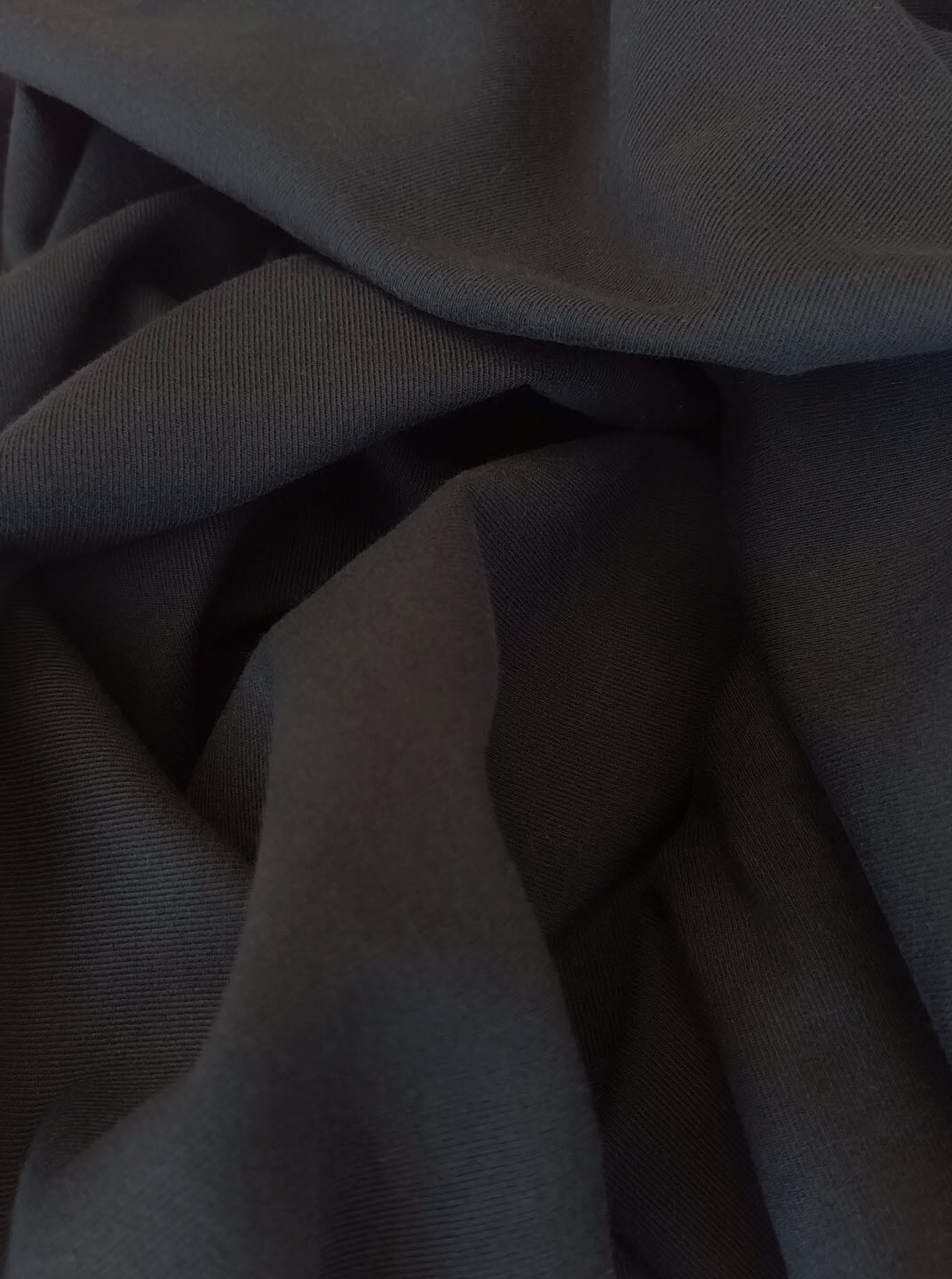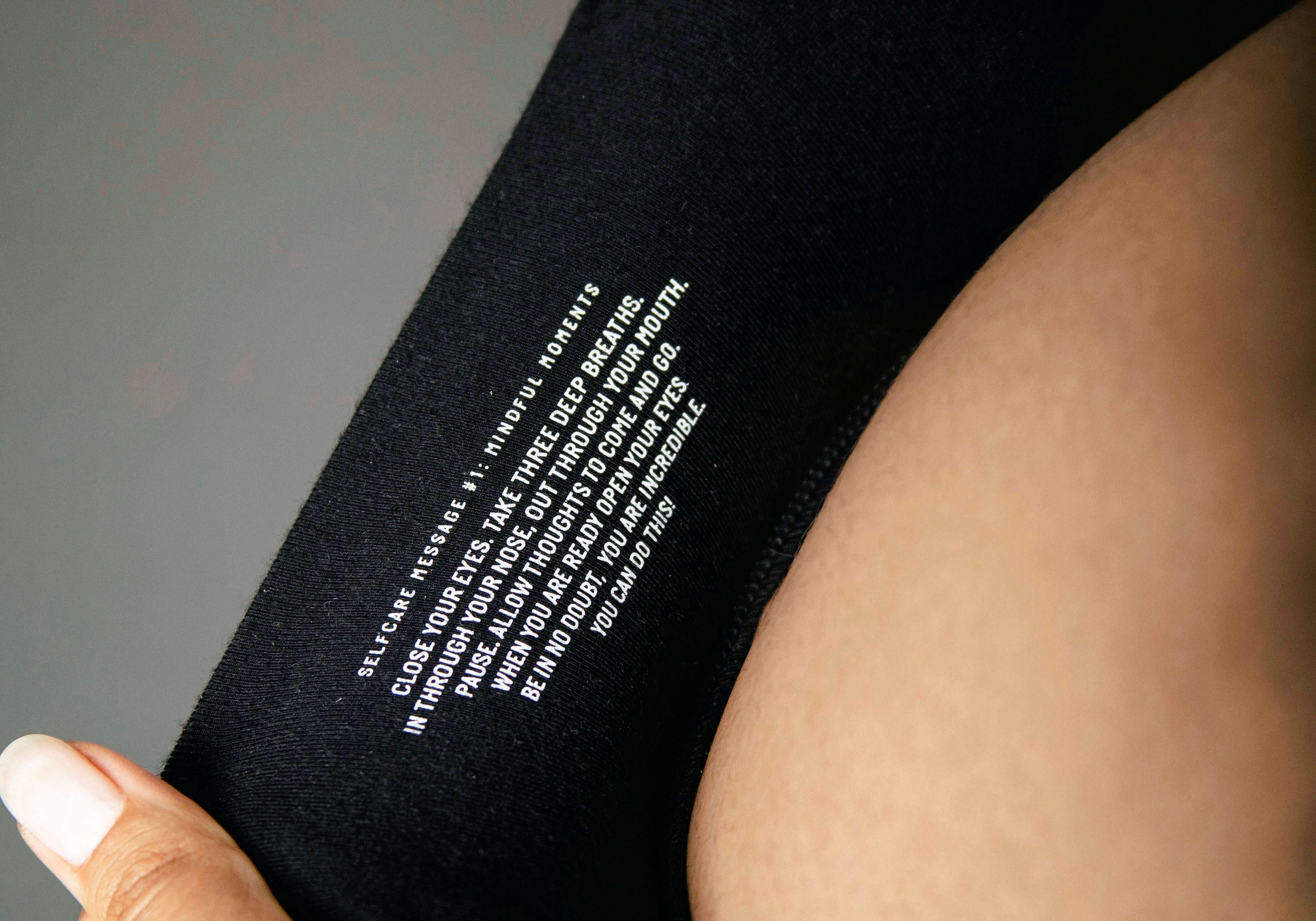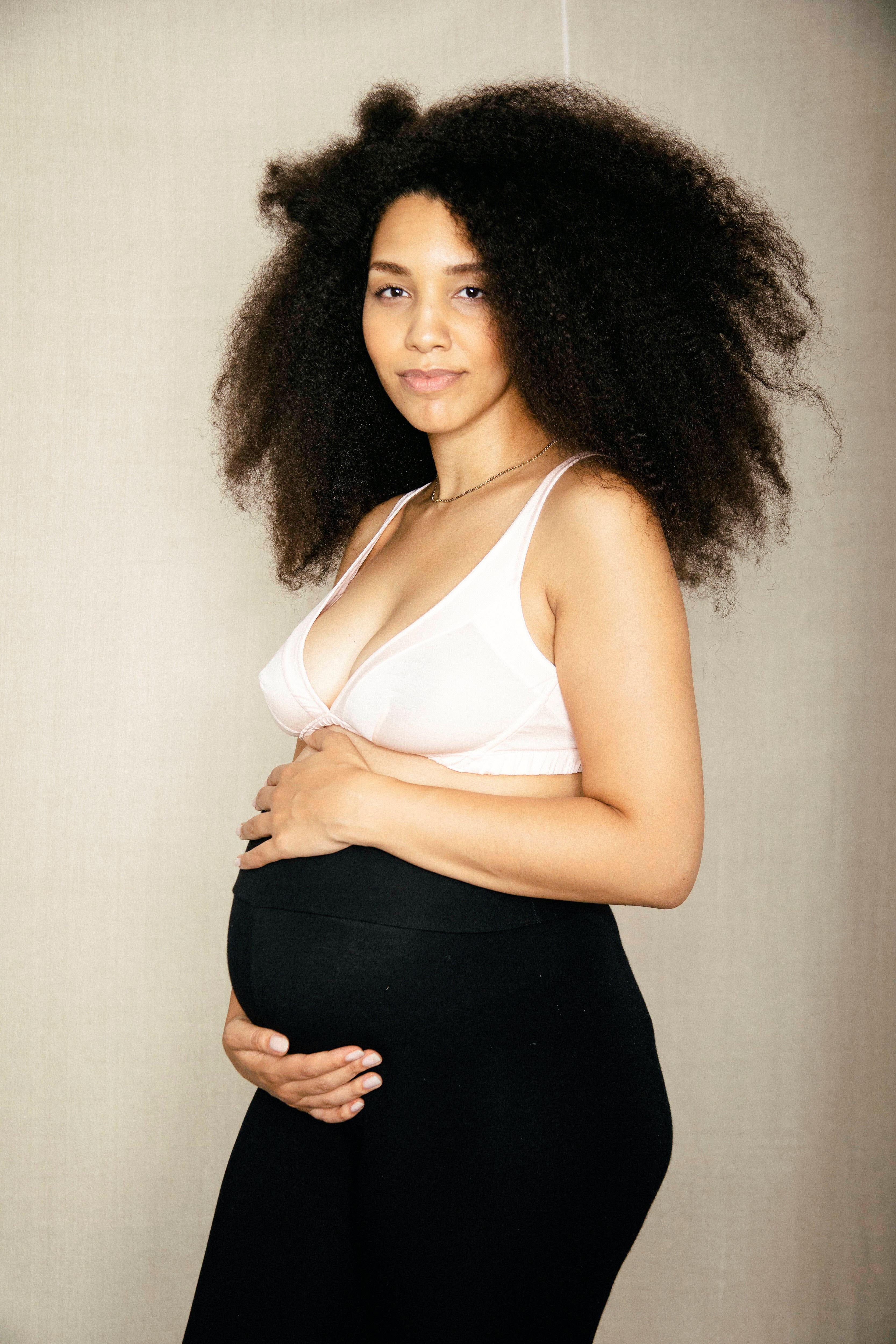
In collaboration with PYRATES Smart Fabrics, Mama Matters’ team of two, Delia Wieser and Katharina Griesbacher, has created the ‘world’s first’ sustainable and naturally body-caring leggings that encourage relaxation and wellbeing for mums.
During pregnancy, women’s skin is commonly more sensitive. Natural skincare products have long been created and encouraged to protect and restore the extra-sensitive skin problems associated with pregnancy. What has been less explored, however, is the fabric compositions that lie directly on the pregnant wearer’s skin. Clothing that comes into contact with the skin can be responsible for itchiness, irritation, or even penetration of hazardous chemicals into the human body, as many textile manufacturers coat their products in toxic chemicals in various stages of the process from colouring to coating to finishing.
“That’s why we’re creating the world’s first sustainable, natural, body-caring leggings that encourage the body to relax and recover while supporting [future] mums’ mental wellbeing,” says Mama Matters, the start-up company set up by mothers Delia Wieser and Katharina Griesbacher.
In 2018 Wieser attended Munich Fabric Start. She describes the event as a “key moment for the brand” as she met Regina Polanco, founder and CEO of PYRATES Smart Fabrics. Wieser explains what happened that day: “When we touched the PYRATEX® materials they felt like nothing we’ve ever touched before: extremely soft and premium quality. We fell in love. We didn’t plan to develop motherhood-wear before, but when we found out about their special certified properties we thought we absolutely need to do something with it. And here we are today.”
Pilar Tejada López, head of brand and communication at PYRATES Smart Fabrics also explains how the collaboration came about: “Our CEO Regina met Delia from Mama Matters and we found her idea so interesting and it completely fit into our brand identity and values. So, when she re-contacted us to let us know she was finally ready to start the sampling process of her leggings, we were more than excited to begin this journey together.”
Using natural PYRATEX fabrics by PYRATES Smart Fabrics, Wieser and Griesbacher created two styles of leggings that aim to nurture and protect the pregnant and postpartum body.
“Giving birth to a new identity can be as demanding as giving birth to a baby, yet society mainly focuses on how the baby develops. Our vision is to bring the mum into the spotlight – happy mama, happy baby,” says Mama Matters. “With our Mindful Motherhood Leggings, we are making new mums mentally stronger while caring for their bodies and the planet.”
Technical functionality for pregnant women
For the future mum, Mama Matters has created the Pregnancy Second Skin Leggings. Made from PYRATEX freshness fabric, which is made of 95% organic bamboo viscose and 5% spandex, the leggings help to thermoregulate the body while providing antiperspirant and antibacterial properties as well as being uniquely soft and comfortable.
The bamboo fibre in the PYRATEX material is an Oeko-Tex-certified cellulose fibre grown in China. There are over 700 bamboo species in the world, but currently only CI-BAMBOO can be made into textile bamboo fibre. Because the cross-section of the bamboo fibre is filled with various micro-gaps and micro-holes, garments made from bamboo fibre are not only breathable, but are 1-2°C lower than others, making them perfect for rapid absorption and evaporation of sweat. The fibre is also naturally antibacterial, preventing bacteria and fungus growth, as well as being anti-irritation and incredibly soft.
And for the new mum, the Postpartum Strong Support leggings are made from PYRATEX power fabric, made of 87% micro Tencel and 13% elastane. The fabric is said to be more absorbent than cotton, softer than silk and cooler than linen. Made from recycled Tencel fibres that are Standard 100 Oeko-Tex-certified and produced in Austria, the PYRATEX power fabric is said to have fantastic moisture management (100% more absorbent than synthetic fibres and 50% more than cotton) and is also naturally antibacterial. These properties, alongside its contour fitting and anti-irritation behaviour, make this fabric ideal for sensitive post-baby skin, according to Mama Matters.
Empowerment
Besides actively caring for the body, the leggings ‘empower’ pregnant women and new mums to build confidence using self-care messages printed on the inside. They are visible only to the wearer and were added in an aim to give ‘a boost of motivation’ or ‘a moment of mindfulness’.
The Pregnancy Second Skin leggings, built for future mums, are printed with the following message: “Close your eyes. Take three deep breaths. In through your nose, out through your mouth. Pause. Allow thoughts to come and go. When you are ready open your eyes. Be in no doubt, you are incredible. You can do this.”
And for the new mum, the Postpartum Strong Support leggings read: “There is no best, perfect or proper way to motherhood. Just your way. Listen to your heart and your intuition. Love yourself. You are an inspirational woman and a wonderful mother.”
The World Health Organisation states that the postpartum period is both the most neglected and critical phase in the lives of mothers and their babies. One in five women are thought to be affected by postpartum depression, while 75% experience the ‘baby blues.’ Studies show that women who are informed and educated about the postpartum time and its effects before giving birth have a 50% lesser risk of developing it.
And not only do the leggings empower the wearer, but each pair is hand-sewn on demand in Vienna at FUER: an atelier where female refugees with social difficulties are given the opportunity to apply their skills in a respectable job and find a way to integrate into the local community.
Sustainability
In an aim to not only protect future-and-current mothers, Mama Matters also draws great attention towards the protection of Mother Nature.
“We are using the smartest sustainable resources available: bamboo and wood pulp. Thanks to an innovative, chemical-free process, the final PYRATEX fabrics maintain the body-caring properties of each plant,” says the brand.
The bamboo fibre used in the Pregnancy Second Skin leggings is grown organically, without chemical pesticides, in the Sichuan province of China. Bamboo is 100% biodegradable and can grow as much as 3 ft overnight, making it a fast growing, renewable resource.
And the PYRATEX power fabric for the Postpartum Strong Support leggings is a breathable fabric made from recycled Tencel fibres, fully biodegradable under soil and marine conditions, which come from wood grown without chemical fertilisers in natural, sustainably managed forests. Around 100% of the wood and pulp used to create Tencel fibres is FSC or PEFC-certified or controlled, and the water scarcity impact of these fibres is 1.7 times lower than that of generic viscose fibres.
The active components of all PYRATEX fabrics are not injected nor added, they are embedded in the fabric and thus have no expiration date, nor do they wash away.
“All our PYRATEX fabrics are knitted in Europe, thus increasing our capacity to control and have full traceability of our production chain and techniques, processing and managing each order from scratch, as well as reducing the distance, and therefore CO2 emissions, between each step,” says López.
Mama Matters says that the production of the leggings requires less energy and water consumption than cotton and no harmful substances are used. The products are currently hand-sewn on-demand at FUER, ensuring there is no overstock or overproduction.
The finished product
Available in three sizes, and two lengths per size, Mama Matters’ leggings reportedly reflect the brand’s larger aim to promote three things: healthy mind; healthy body; and healthy planet & society.
Wieser explains the current plans for the brand: “We started with motherhood leggings and we’re expanding our collection with more basics made of the same amazing materials, printed with self-care messages visible only to the wearer.”
She continues: “We are currently working on a new version of our website which will be launched in around three weeks where more of our products will be available to order.”
The long goal for Mama Matters is to develop a complete body-caring maternity basics collection and explore the introduction of new smart and natural materials based on algae, which positively affect both the environment and the human skin.
To learn more about Mama Matters, visit https://mama-matters.com/
To learn more about PYRATES Smart Fabrics, visit https://www.pyratessmartfabrics.com/
Have your say. Join the conversation and follow us on LinkedIn









